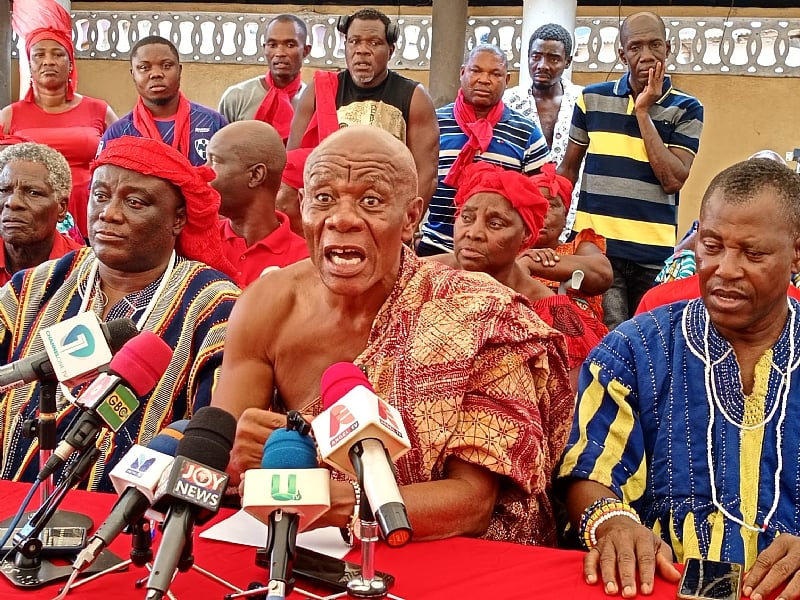The Tema Traditional Council (TTC) has expressed profound disappointment and a sense of betrayal over President John Dramani Mahama’s nomination of Ms. Ebi Bright as the new Metropolitan Chief Executive (MCE) of Tema. While acknowledging Ms. Bright’s achievement as the first woman nominated for the position, the council’s discontent stems from the government’s perceived disregard for their longstanding request to appoint a native of Tema to the MCE role. This decision, according to the council, represents a pattern of marginalization and disrespect towards the indigenous people of Tema and their contributions to the development of the metropolis. The council’s plea for an indigene to lead the Tema Metro mirrors similar appointments in other coastal towns, reinforcing their belief that Tema is being unfairly singled out. This perceived inequity fuels a growing sentiment of alienation within the community, raising concerns about their place and recognition in the governance of their ancestral land.
The TTC’s dissatisfaction is deeply rooted in a sense of historical injustice. Nii Amarh Soumponu II, the Tema Shipi and Stool Secretary, articulated the council’s grievances by highlighting past sacrifices made by the people of Tema, particularly the relinquishing of their farmlands for industrial development. These sacrifices, which were instrumental in transforming Tema into a significant industrial hub, are now juxtaposed against the perceived denial of their rightful place in the leadership of their own community. The council argues that despite their substantial contributions to the region’s growth and prosperity, they are consistently overlooked for key leadership positions, reinforcing a feeling of being treated as second-class citizens on their ancestral land. This sense of historical dispossession and ongoing marginalization underscores the council’s fervent appeal for recognition and equitable representation in local governance.
The council’s request for an indigenous MCE is not simply a matter of symbolic representation; it is deeply intertwined with their desire for a leader who understands the unique challenges and aspirations of the Tema community. They believe that an indigene, intimately familiar with the historical context, cultural nuances, and socio-economic dynamics of Tema, would be better equipped to advocate for the community’s interests and address its specific needs. This perspective emphasizes the council’s belief that effective leadership requires not only competence but also a deep-rooted connection to the community being served. The appointment of an outsider, in their view, risks perpetuating a disconnect between the leadership and the people, potentially hindering the progress and development of the Tema Metropolis.
Furthermore, the council’s discontent highlights the complex relationship between traditional authorities and modern political structures in Ghana. The council’s appeal underscores the importance of recognizing the traditional authority’s role and influence within the community, particularly in matters of local governance. They see the government’s decision as a disregard for their customary authority and a failure to engage in meaningful consultation. This perceived lack of respect for traditional structures contributes to the feeling of marginalization and fuels the council’s call for greater recognition and inclusion in decision-making processes. Their plea for an indigenous MCE represents not only a desire for self-determination but also an assertion of their traditional authority within the evolving political landscape of Ghana.
The council has vehemently denied any accusations of hostility towards non-indigenes residing in Tema, emphasizing that their plea for an indigenous MCE is not driven by xenophobia but by a desire for fair representation and recognition of their historical ties to the land. They clarify that their concern lies solely with the perceived inequitable treatment they are receiving on their ancestral land, not with the presence of non-indigenes within their community. This clarification seeks to differentiate their call for inclusivity and fairness for the indigenous population from any form of discrimination against other residents of Tema. It underscores their commitment to peaceful coexistence while simultaneously asserting their right to equitable representation in local leadership.
In conclusion, the Tema Traditional Council’s reaction to the MCE nomination reflects a deeper struggle for recognition, respect, and self-determination within the context of Ghana’s political and social landscape. Their plea for an indigenous leader is not simply a matter of preference but a fundamental assertion of their historical claim to the land, their contributions to the development of Tema, and their right to meaningful participation in the governance of their community. Their disappointment underscores the importance of inclusive governance, respect for traditional authorities, and the need for genuine dialogue between the government and indigenous communities to address historical grievances and foster a sense of shared ownership and belonging. The council’s commitment to peaceful advocacy, despite their deep-seated frustration, underscores their hope for a more equitable and inclusive future for Tema.














